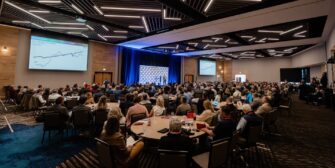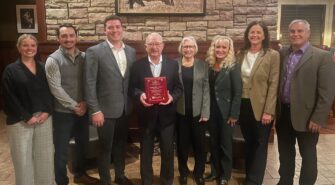3 Family Businesses Honored with Awards from Prairie Family Business Association
Recent News
Building boom means business boom for longtime family companies
Posted in PFBA, Success Stories | August 3, 2021
What would be the worst-case scenario?
In 2020, the leaders of Hamlin Building Center asked that question.
“We put it on paper,” said Joe Homola, manager of the business with locations in Brookings and Lake Norden.
“What would it look like to shut down? Not close the business but pause it.”
It was the beginning of the global pandemic, and no one knew what the future held.
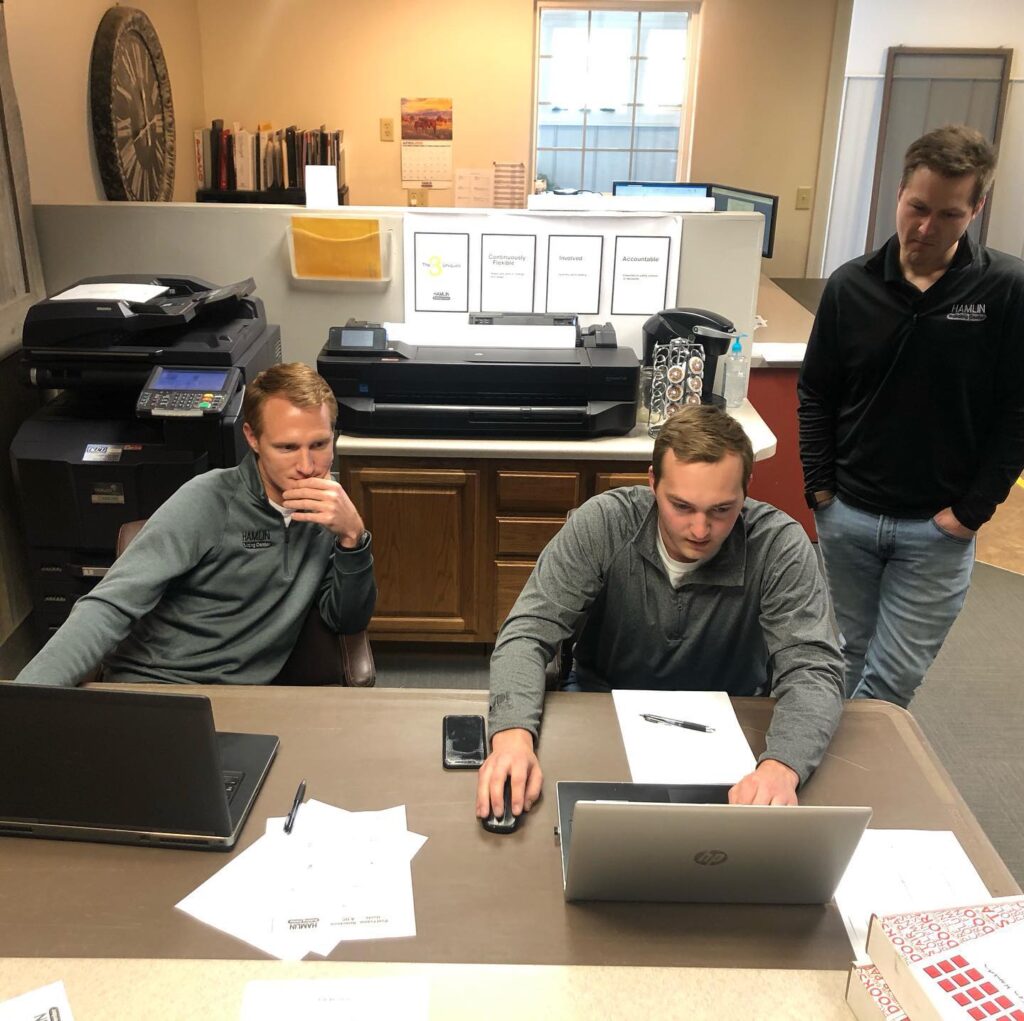
Forty days later, it was clear that exercise had been just that – an exercise.
“We realized it was completely the opposite,” Homola said. “We were wondering how we were going to keep up with demand.”
The business ended with a record year in 2020. And the momentum hasn’t stopped.
“We’re on our way to another record,” Homola said. “It’s been a full-court press. We’ve had all hands on deck trying to stay ahead, order, quote and keep up drawing to basically stay ahead of the (material) increases.”
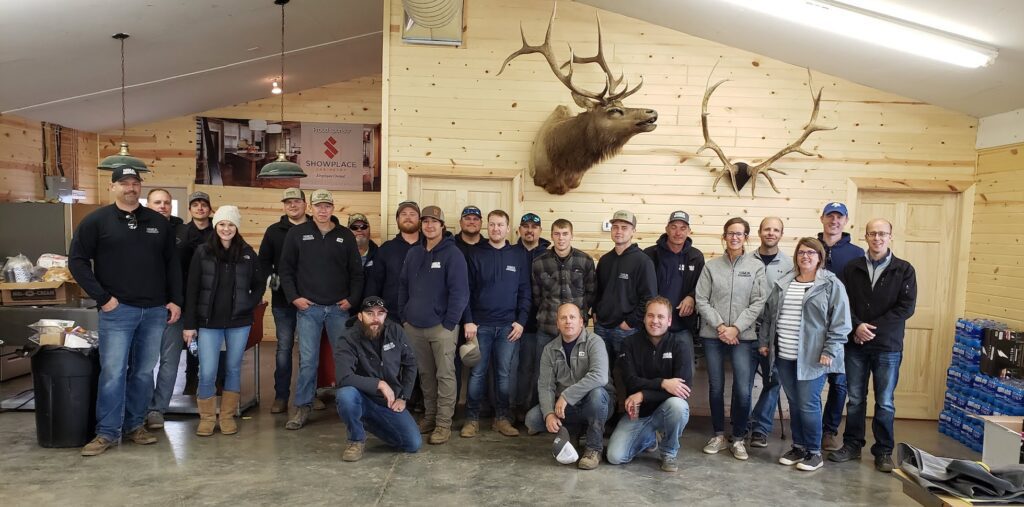
The experience at Hamlin Building Center has been repeated across businesses large and small regionwide that support the building industry.
As more people stayed home, decided to improve their homes, put stimulus money to use and in some cases decided to move, building-related businesses have experienced a historic boom.
It’s a similar story in North Dakota at Western Products, a home improvement company that offers products and installation of windows, siding, roofing and more.
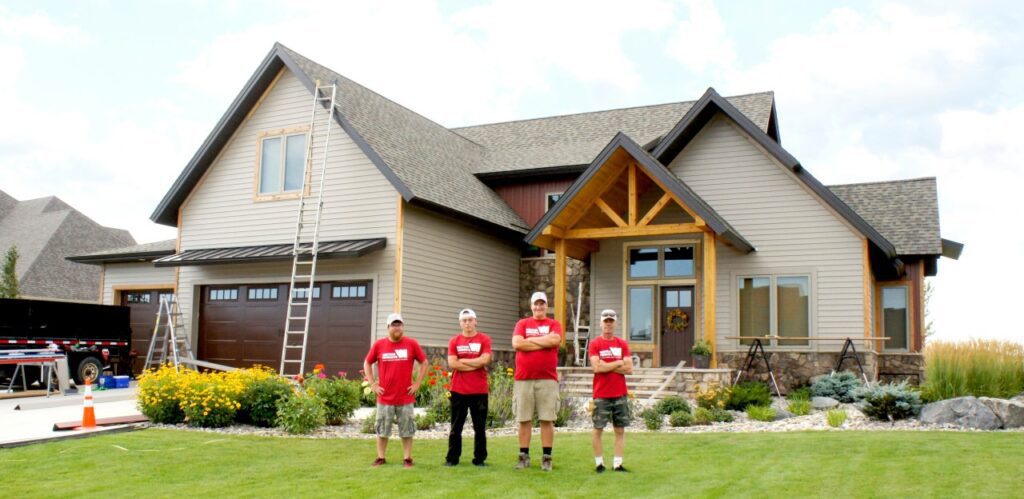
“It’s been very busy,” said Kelly McComb, a second-generation member of the family business. “The most difficult thing has been the labor shortage. That’s been our biggest hurdle.”
Both the opportunities and challenges are consistent among family businesses in the industry.
“We support many family businesses in the building industry, and across the board this is the theme,” said Stephanie Larscheid, executive director of the Prairie Family Business Association.
“The level of activity is excellent from a business standpoint, but managing the growth and uncertainty also brings its own challenges, and when you’re a family business, sometimes that all can be more difficult to navigate. So we’re glad to have been able to offer support and connection for them along the way too.”
Supporting the industry
With lumberyards and building-related retailers so busy, those who service them are too. Family-owned Building Products Inc., which is based in Watertown, is a wholesale distributor of building materials and millwork to more than 1,000 dealers from Colorado to Chicago.
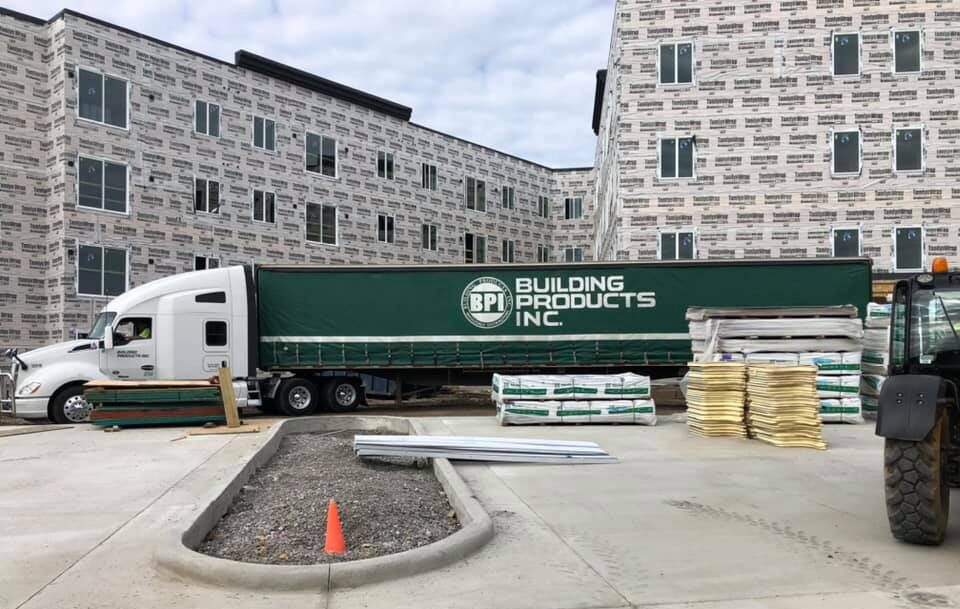
“It’s been a challenge, but it’s also been very exciting,” said Kyle Schull, a third-generation member of the business his grandfather acquired in 1957.
“Last year was an all-time record for BPI, and we’re up from that by just under 30 percent this year. So very, very high levels of demand, kind of unprecedented levels, and you mix that in with the challenge of sourcing materials from manufacturers because they’re struggling with resin and labor shortages, but it’s a really good problem to have to be so busy.”

BPI has branches in Sioux Falls, Fargo and in Iowa in Council Bluffs and Waterloo. To keep up with demand, the business has hired three management positions and has eight more openings.
“We’ve had to really ramp up our HR activity and brought on some new programs to help us source personnel to make sure the right people are in the right seats,” Schull said. “But there’s a steady flow of applicants.”
Navigating the market
At Schlachter Lumber, “we sell anything that has to do with the home,” said Michael Schlachter, who co-owns the business with his sister, Kathleen.
“We sell cabinets, windows, doors, millwork, hardware, lock sets. We do a lot of flooring, shower systems. We do it all.”
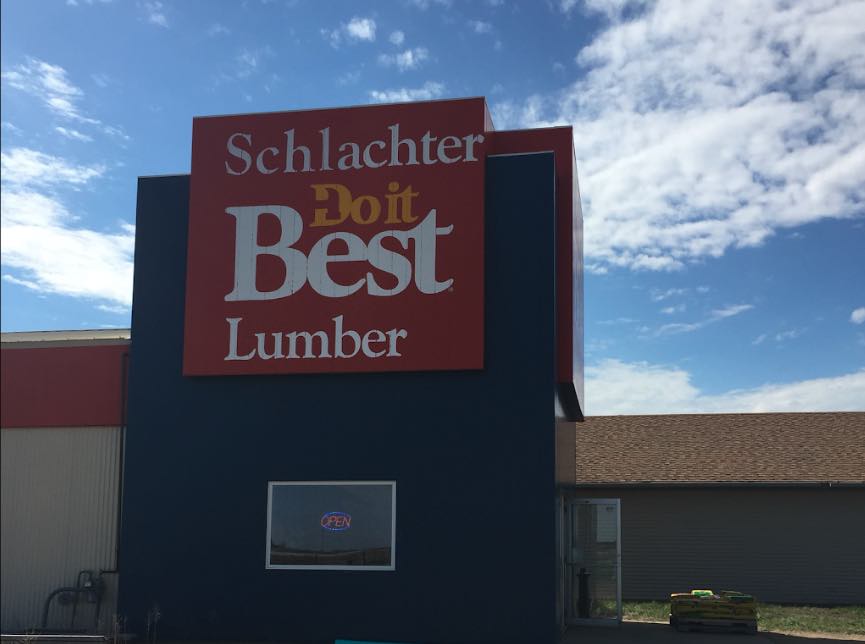
And it all has been in demand, he said.
“It’s been busy, very busy,” he said. “People just want to get stuff done. Prices were sky high for a while, but they’ve come down. There’s a lot of activity, interest rates are cheap, and that’s been driving it.”
Based in Gettysburg, the Schlachters are fourth-generation owners of the business founded in 1888 and the oldest lumberyard in South Dakota. Five years ago, they also acquired Hoven Hardware in Hoven.

Individuals and builders come from 60 to 100 miles away – and increasingly from closer than that.
“We’ve seen people moving back, not so much from out of state but from bigger cities and coming home,” Schlachter said. “Some moved to Sioux Falls and worked there 20 years and now have little kids and decided to move back, and their jobs made it possible for them to do that.”
There aren’t a lot of homes available, so “they fix up what they have, and when someone does sell, it leads to building, so it’s kind of a chain reaction,” he said.
The farming economy always has to be considered, though.
“Everyone is edgy because it’s dry here. We had the second-worst spring wheat harvest ever,” Schlachter said. “We rely heavily on the ag economy.”
At Hamlin Building Center, 75 percent of the business is to contractors, and the rest is directly to homeowners.
Scarcity of some materials and rising prices, especially for lumber, have added to the challenge of a busy two years.
“We threw out the old playbook,” Homola said. “We tried to move the cycle sooner. If we had projects 80 percent committed, we would actually buy the stock items, items that weren’t special order, for those jobs. We stocked up on inventory just to beat increases and combat lead times.”
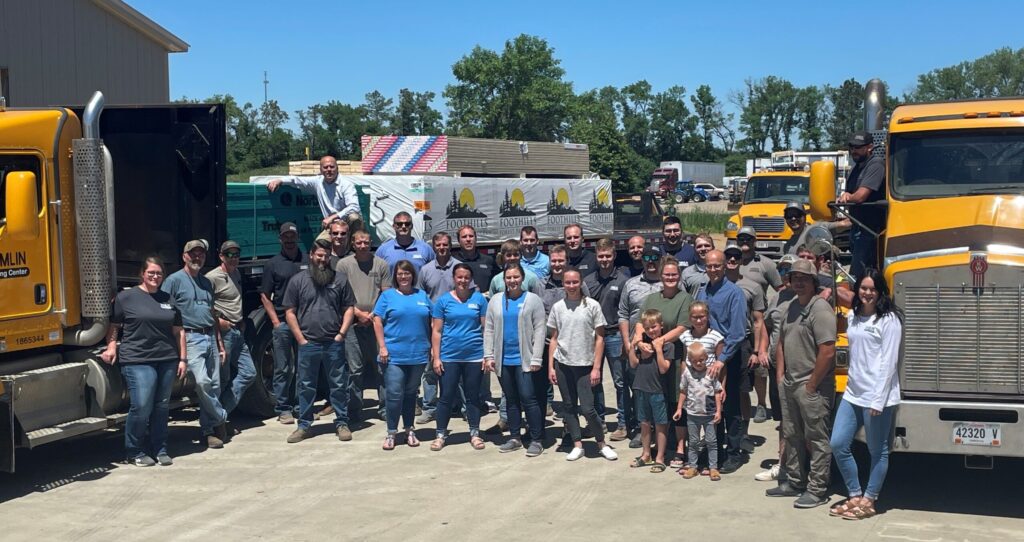
At Western Products, managing everything from supply chain issues to labor shortages to customer expectations has kept the business attempting to stay ahead of the situations.
“Businesses able to manage in chaotic environments will see more success,” McComb said. “It really puts your systems to the test.”
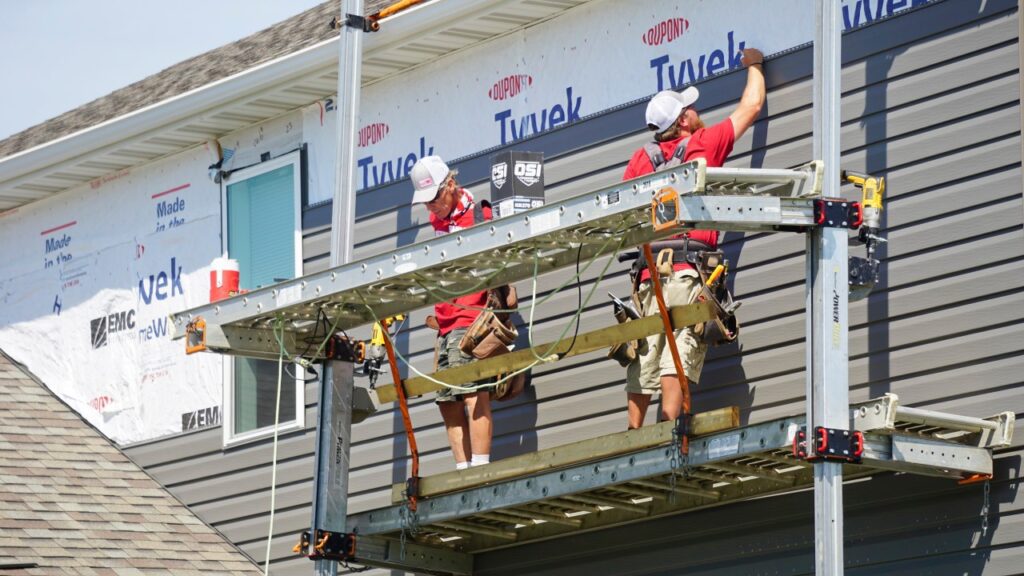
Her business has invested in technology to support the customer experience, providing options for those who prefer to receive information by phone, email or even text message.
“And some positives with COVID were that it pushed us to do things different, whether it was our ability to do quoting remotely or with very little contact to a new system we have with a completely digital presentation we can provide,” McComb said. “We’ve been able to enhance, still be person-to-person, but with a lot more tools.”
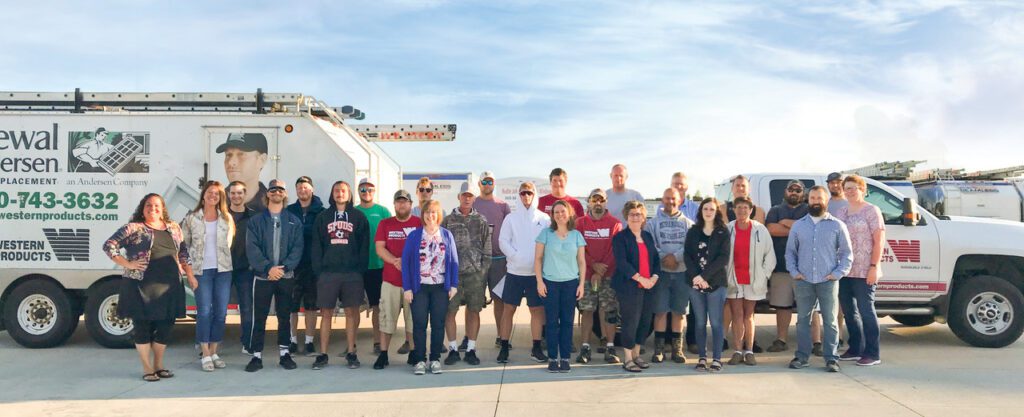
And at BPI, the business’ longtime relationships with key vendors have paid off.
“We try to partner deep with one vendor for a certain product category,” Schull said. “When you’re the sole source, you can leverage that relationship in a way that they get you the material. Certainly, we have holes, like every other building material supplier, but on the whole I’ve been happy with how our vendors have handled the pandemic. They’ve gone above and beyond for us.”

All four businesses are members of the Prairie Family Business Association who enjoy connecting with others and learning best practices, they said.
Hamlin’s Homola began acquiring ownership in 2005 and took over full ownership in 2015 when his father retired. His brother Rick and his son Kamden also work in the business.
They learned about the association through former employee Kyle Kangas, who helped introduce Hamlin to the Entrepreneurial Operating System, or EOS. That figured in heavily to navigating the pandemic too.
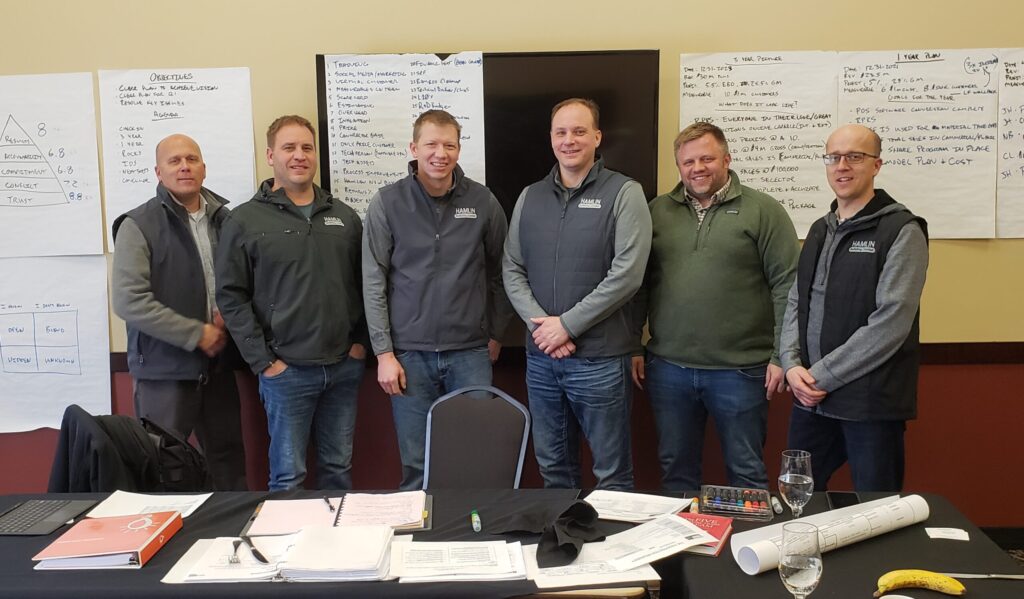
“At first, I thought I really didn’t need anything to pay attention to, but after being on some of the Prairie Family webinars and talking to others, I thought I should probably look into it. We’re selling different things and doing different projects, but at the core we’re dealing with the same things, and I feel I can learn so much from others.”
He’s also a father of eight, so the next generation is on his mind in looking toward the future.

“We’ll see what happens in the future. I was 24 when I first started buying into it, and I’m trying to plant the seed a little in their mind even though they’re not interested in working here now. It’s going to be here at some point,” he said. “Even though it seems so far away, I have to start thinking about it.”
It’s the same story at Western Products.
“We sat in on the Prairie Family business conference remotely, and I really enjoyed it,” said McComb, crediting the family’s membership for helping it begin the process of succession planning.
“It’s definitely keeping it front and center.”
At BPI, which joined the association two years ago, the conference also was valuable, Schull said.
“I thought it was outstanding,” he said. “I was really impressed with the breadth of experience and speakers.”
He also began conversations with other families as he starts his own leadership transition. Once he hires for his position — vice president of sales and marketing — he’ll transition to president, and his father, Lester, will transition to an adviser.
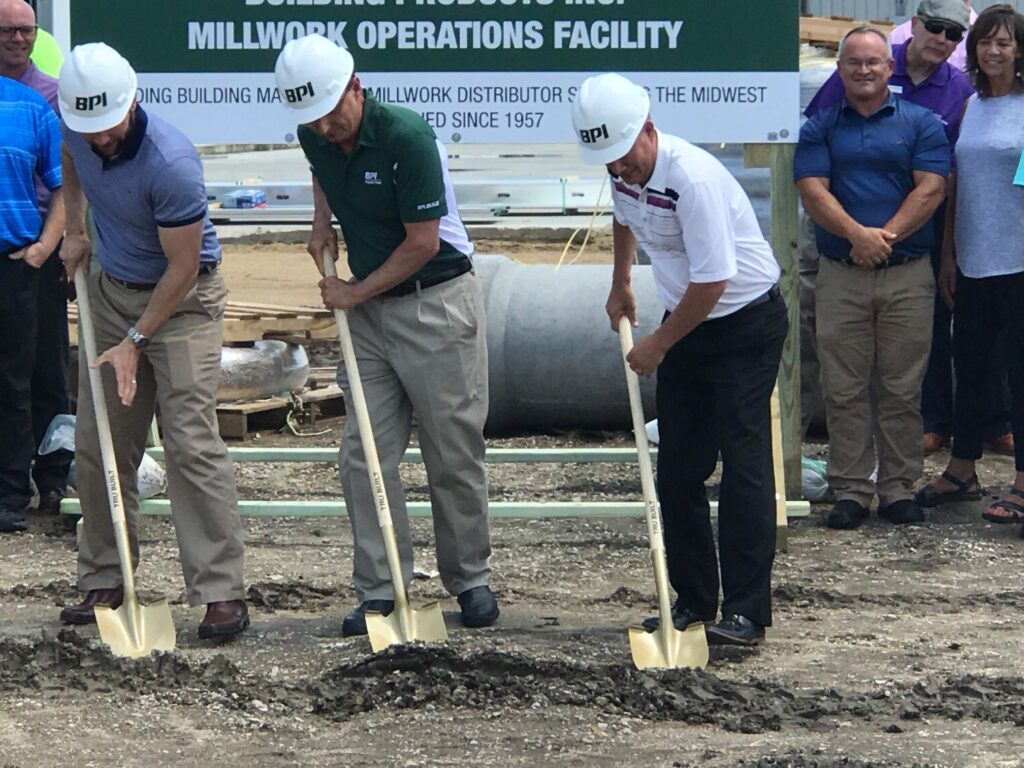
“Certainly, the industry continues to change,” Schull added as he looks to the future. “I don’t think we’re going to be going back to business as usual.”

